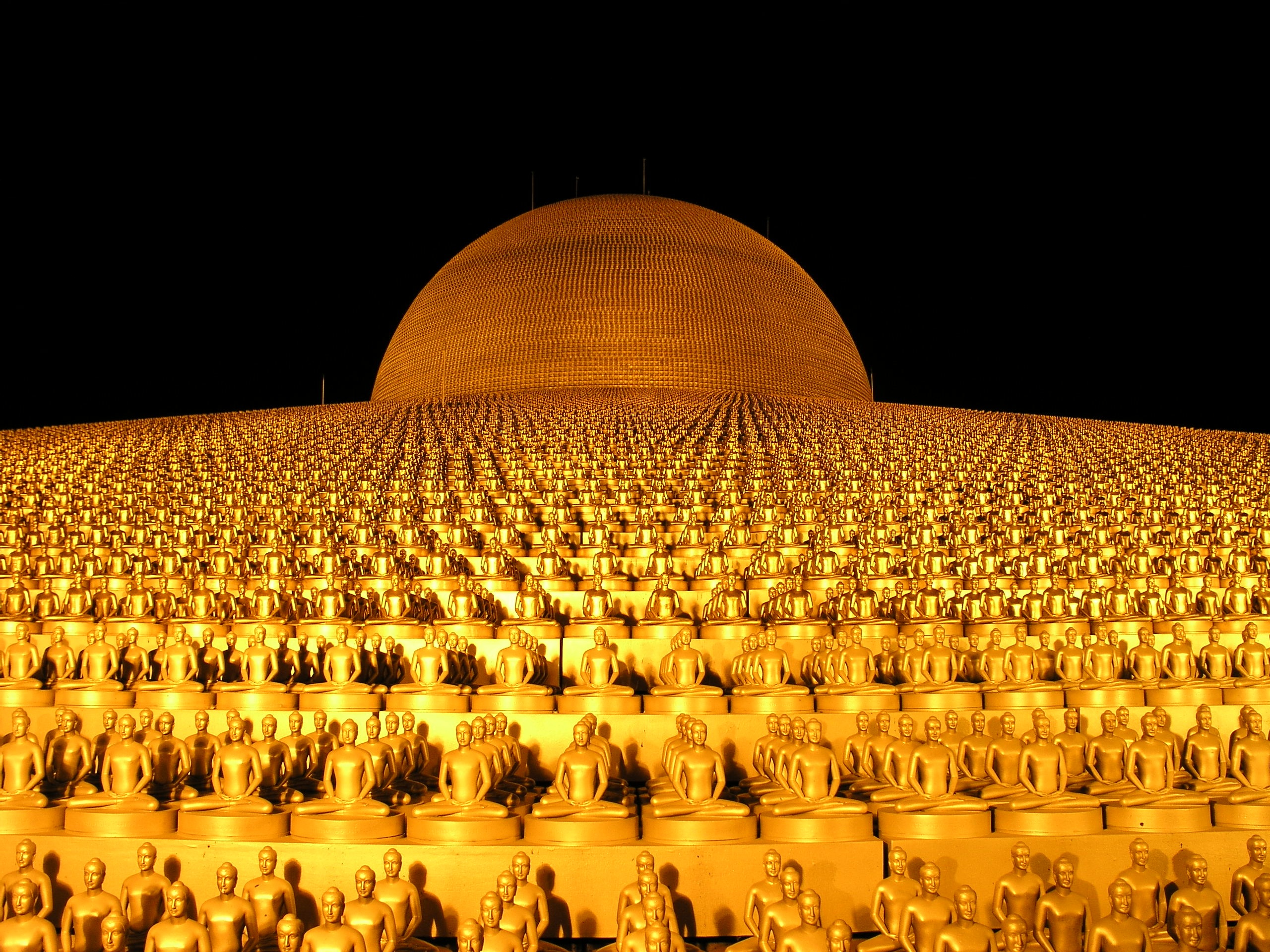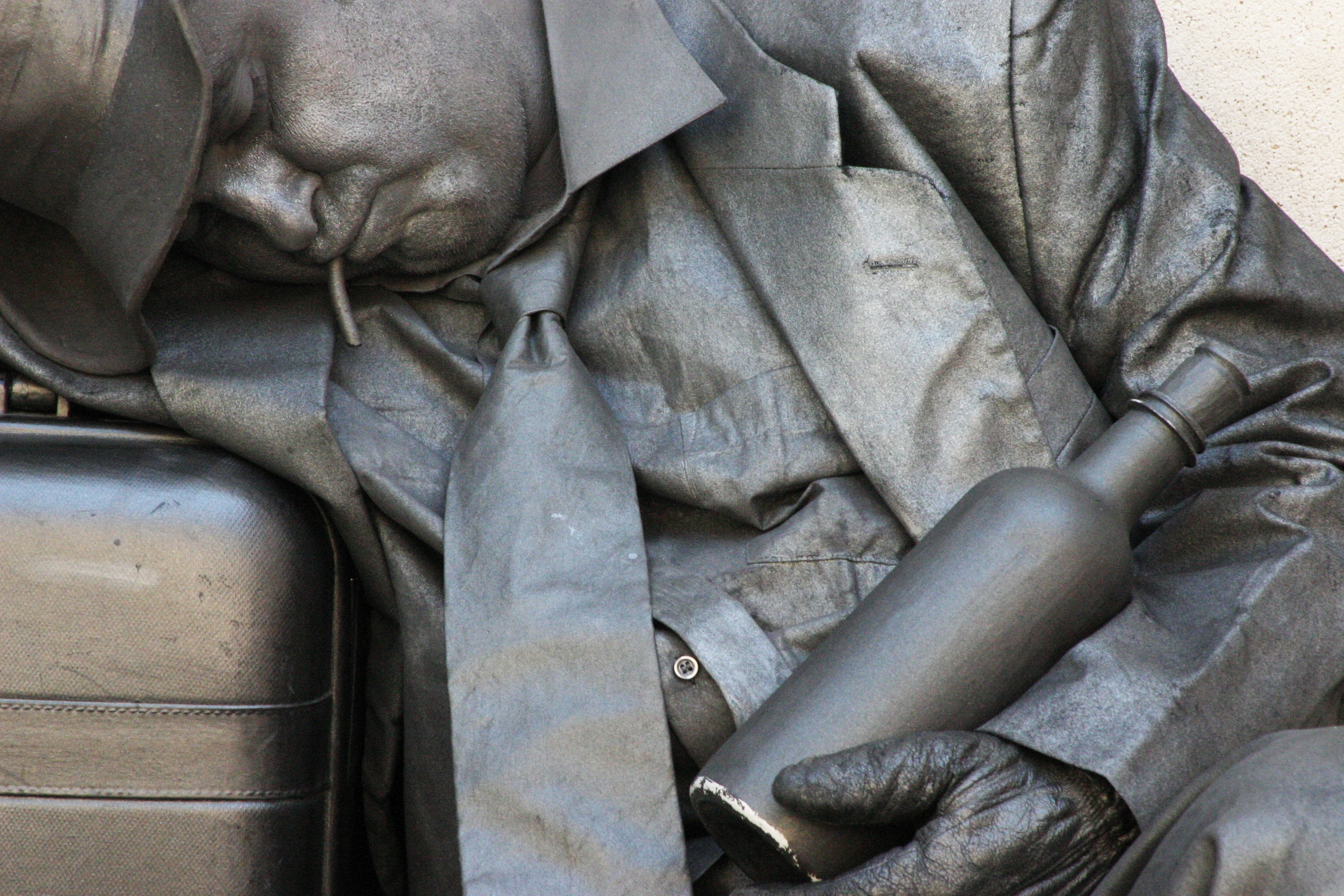When a person engages in what the Bible calls idolatry, it has major consequences. One seeks rest and peace from the invisible world, from the 'gods'. By manipulating the thoughts – emptying your head, or seeking 'silence' – a higher consciousness arises, in which you perceive reality differently and demons gain access to the human soul. The consequences of this are huge.
At first the feeling is fantastic; in the soul 'the real reality' is experienced. Rest in your mind and peace in your heart; harmony and unity with everything and everyone around you.
But without noticing, there are the following disastrous consequences:
- The conscience about what is right and wrong diminishes and even disappears at some point; one is no longer aware of what sin is in the sight of a holy God.
- One sees oneself as a good person; 'I am loved' is deeply imprinted and some see themselves as 'god' or a 'little god'.
- The new conceptions of 'reality' – who we humans are before a holy God – are engraved deep in the soul.
- Death is no more a dreadful thing, and eternity will be glorious; hell no longer exists and no longer instills fear.
- After all, this also means that you shouldn't take the Bible literally anymore – especially not those terrible things in the Old Testament. Forget what you may have learned about that in the past.



A Biblical Testimony
There is an important text in the book of Deuteronomy that illustrates this.
“And it will come to pass, if upon hearing the words of this curse [that is: the judgment of God] blesses himself in his heart, saying: I will have peace, even if I follow my hardened heart; abundance shall take away thirst, that the LORD will not forgive him…”
Deuteronomy 29:19,20
read here more about the context of the chapter. The following quote from it:
- He blesses himself in his heart. The word for 'bless' comes from 'to kneel'. You can say that he kneels to himself and sees himself as god. That is indeed what happens in the state of higher consciousness.
- “I will be at peace”. 'Peace' is not only the absence of war but also something like 'wholeness', completeness'. The idolater deludes himself that God does him no harm because there is nothing flawed in him. He sees himself as good in the sight of God, even if he continues to "follow his hardened heart."
- “I follow my hardened heart”. Interesting is the meaning of 'hardened'. The KJV says here “I walk to the imaginations[3] of my heart”[4] and the Naarden Bible says: “with the certainties of my heart I will go on.” The combination of both is exactly what happens in the higher consciousness: your perception of reality changes, you get imaginations (images) that go deep into your soul and that you take for the real reality. These are the real certainties that settle deep inside and that no one can take away from you. As a result, you are no longer open to what God really has to say to you.
- “Abundance will take away thirst”. The KJV says[5] : 'om drunkenness to add to thirst' and the Naarden Bible also has 'drunkenness' instead of 'abundance'. Drunkenness is a state in which you are "under the influence" and not of yourself, but of something or someone else. You are no longer in control of yourself and become like Paul[6] says 'carried away by the dumb idols' (1 Corinthians 12:2). There is apparently a thirst, a longing for something (or God?) that is satisfied by 'drunkenness', that state of higher consciousness in which you 'experience the real bliss'.
In any case, the influence of demons causes the conscience to be reduced or eliminated and the distinction between good and evil disappears. In addition, one gets the conviction that life is better in the hereafter and that it is a good place to be. That is also the goal that satan and his cronies have. Read more about 'the conscience'.
Judas was one of the disciples of the Lord Jesus, but he was able to betray Him because he too was caught in this net of Satan. Read there here more about.
Initiation into the mystery religion
It is also known of the mystery religions that the rites of initiation work the same things; one comes out a better and happier person. Then you have experienced what 'the real reality' looks like and you are a so-called 'enlightened' person.
“It seems, therefore, first of all to have been the task of the Mysteries to provide their initiates with a blissful condition for the beyond. According to the prevailing views, however, it was possible during this earthly life to dwell with the spirit in higher realms. Under certain circumstances man living on earth could go through in spirit the same as the dead man after his death. Eternal salvation was therefore not reserved only for the dead; the living could also partake of it. (…)
Cicero also says that the initiates not only received lessons which made life more pleasant, but through the ceremonies lived in a happy hope as to the moment of death. Socrates says that those who were fortunate enough to be admitted to the Mysteries, when they died, had the most glorious hope for the future. Aristides maintains that the initiates received not only consolation for the present life, but also the benefit of coming into a happier state after death. Sophocles also associates the initiation into the Mysteries with the bliss of the hereafter. Isokrates says that initiation gives more confidence both in the end of life and in the life to come.”
(From 'Mysteries and initiations in antiquity' by BJ van der Zuylen; Koninklijke Bibliotheek The Hague).
